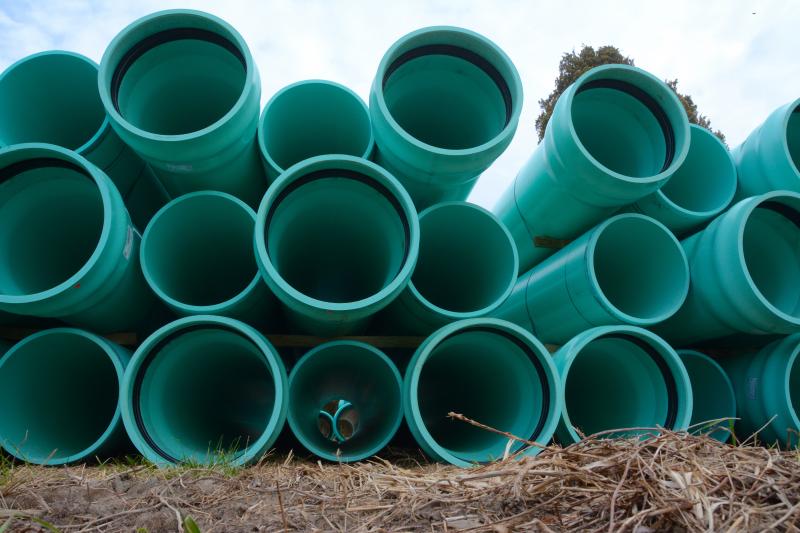Wolfe Neck tract eyed for public use

Nearly 400 acres of state-owned farmland between Lewes and Rehoboth Beach, now used for farming and wastewater disposal, could be planted with native trees and returned to the public as park land.
The acreage, off Wolfe Neck Road, is used by Sussex County to apply treated wastewater, but state and county officials are eyeing the property for a massive renaturalization effort.
“The state has an obligation to restore the water quality of the bays, so this is a smart move,” said Chris Bason, executive director at the Delaware Center for the Inland Bays. “And it will create a much greater area of contiguous lands that so many migratory species will appreciate.”
The county leases more than 300 acres from the state for spray-irrigation disposal of treated wastewater from its Wolfe Neck Regional Wastewater Facility. Significant upgrades to the plant, along with a shift in disposal methods, would allow for the land to be used for wastewater disposal and also for public trails.
The county's land lease expires at the end of the year. Sussex County Engineer Hans Medlarz said the county and state will execute a nonrenewable, 1-year extension that will leave enough time to plan conversion of the property to park land.
“This will allow us a 12-month timeline to implement the long-term solution, which now seems to be shaping up,” Medlarz said. “The joint venture would be the renaturalization of the property, providing access to the public and trails.”
Some of the land will still be used for wastewater disposal, but in a much different way, Bason said. Instead of using large spray rigs that rotate across the fields, the county may consider using subsurface drip irrigation. Another option would be fixed-head risers, which would be similar to irrigation on residential lawns but on a much larger scale.
“That would make it easier to have access and put trails in there,” Bason said. “A lot of attention and safety would be given so people wouldn't be walking in those areas; they would also increase the level of treatment so it would be safe for people to walk near the effluent.”
A significant amount of wastewater processed at the plant will be diverted to the Inland Bays Regional Wastewater Facility in Millsboro, the Lewes wastewater treatment plant or Artesian, thanks to ongoing connectivity projects and recent agreements with Lewes and Artesian to transfer wastewater at peak times, Medlarz said.
“We'd like to gear the facility toward spray-on-demand – more like if the vegetation needs the water, we would give it the water,” he said. Medlarz said the specific design of future wastewater application at Wolfe Neck will depend on the state Division of Parks and Recreation's trail designs for the site.
If the plans are approved by council, about 375 acres just west of Cape Henlopen State Park would be redesigned to include walking trails and a native forest, all accessible to the public. Biking trails and meadow areas also are an option, Bason said.
Reforesting that much farmland will significantly reduce pollution loads entering the Lewes-Rehoboth Canal and Inland Bays watershed, Bason said.
“It is just about the best area I could think about to restore habitat for migratory birds and all the other species that use that piece of park land,” he said.
The Delaware Center for the Inland Bays would design the reforestation effort, Bason and Medlarz said.
The land is also tended by a local farmer, who has a lease with the county that extends far beyond 2016, Medlarz said. The new plan will require a termination of that lease, he said, adding the farmer is in the process of submitting documentation to show financial hardship caused by the planned change in land use.
Medlarz said the Wolfe Neck project and an estimated cost will be reviewed by council Tuesday, Jan. 10.
















































